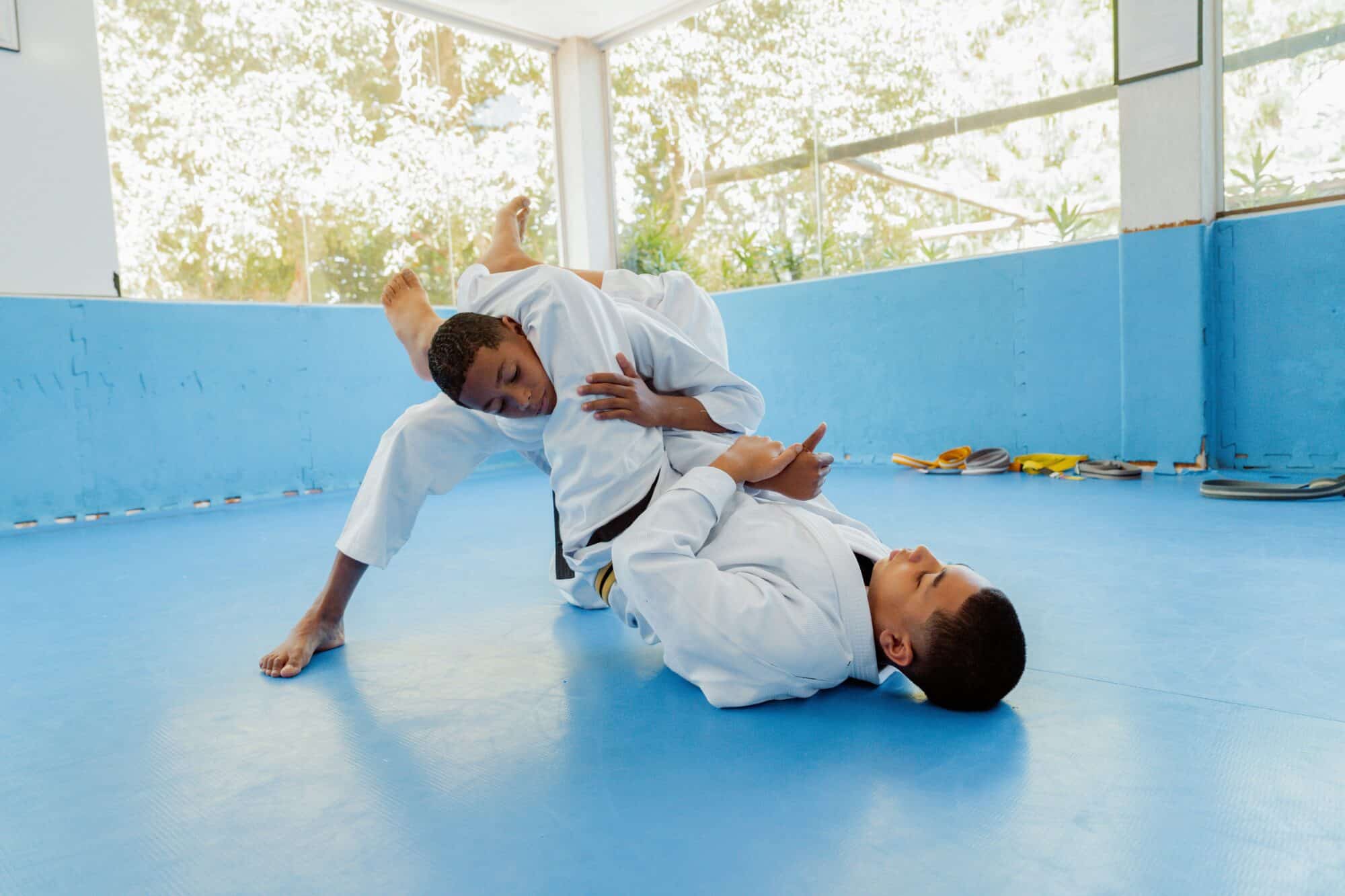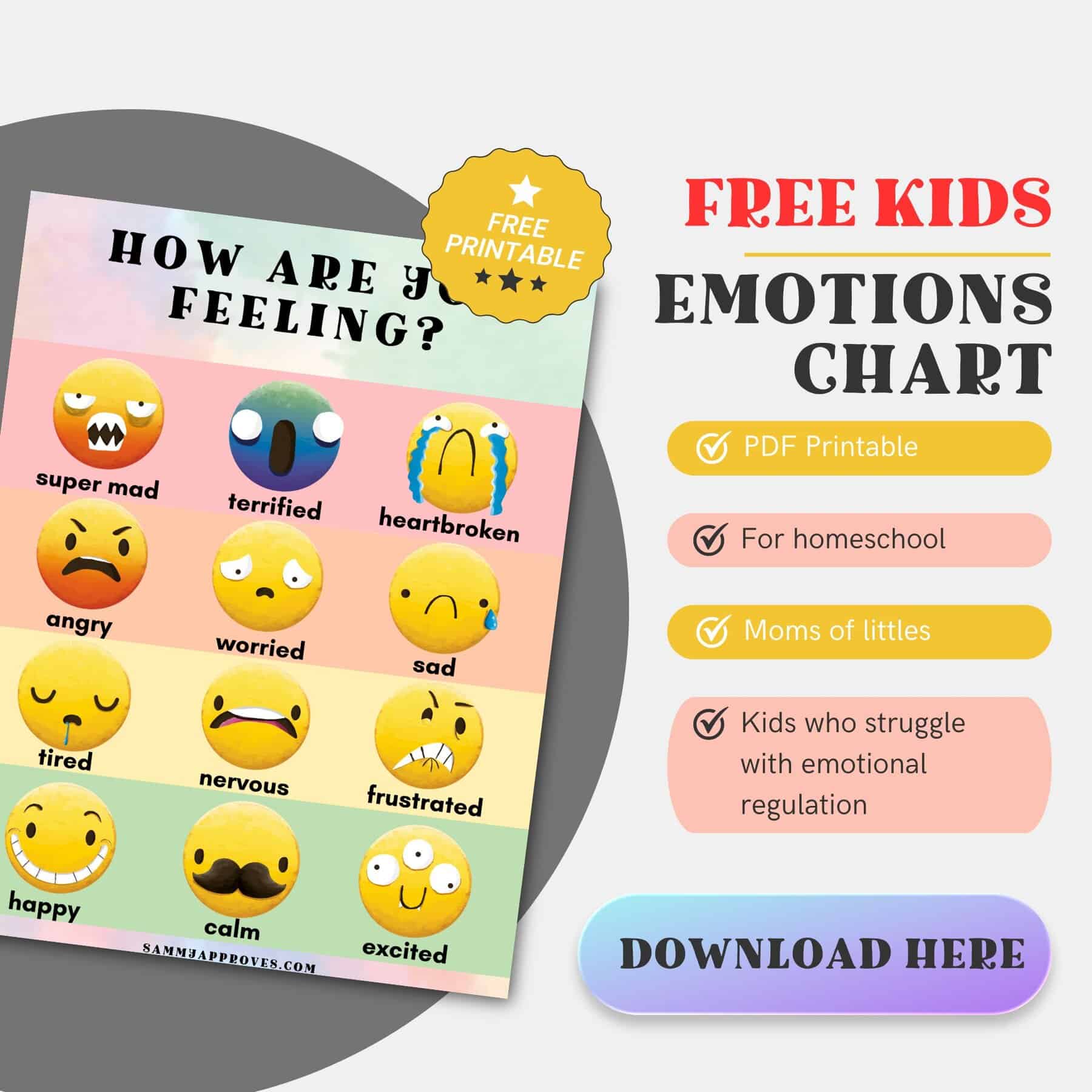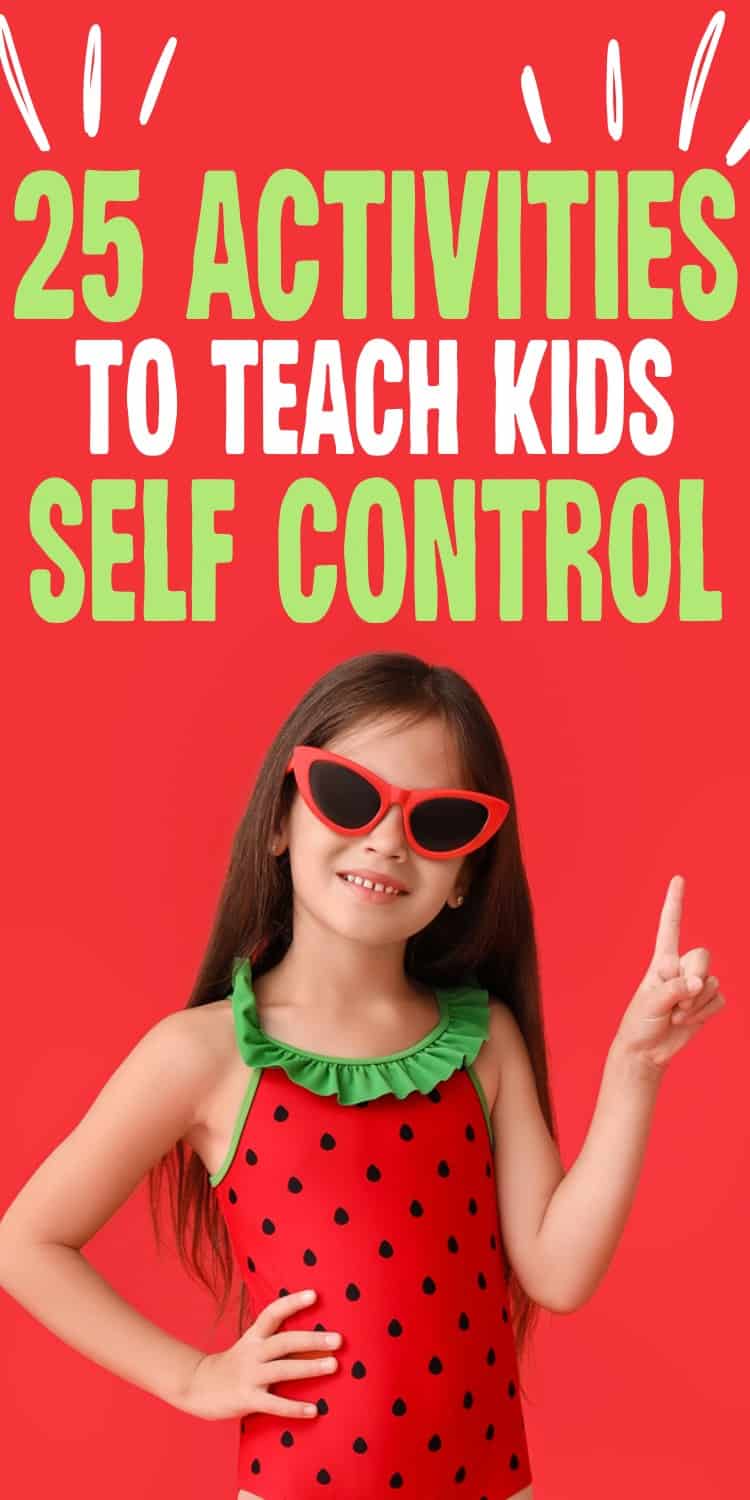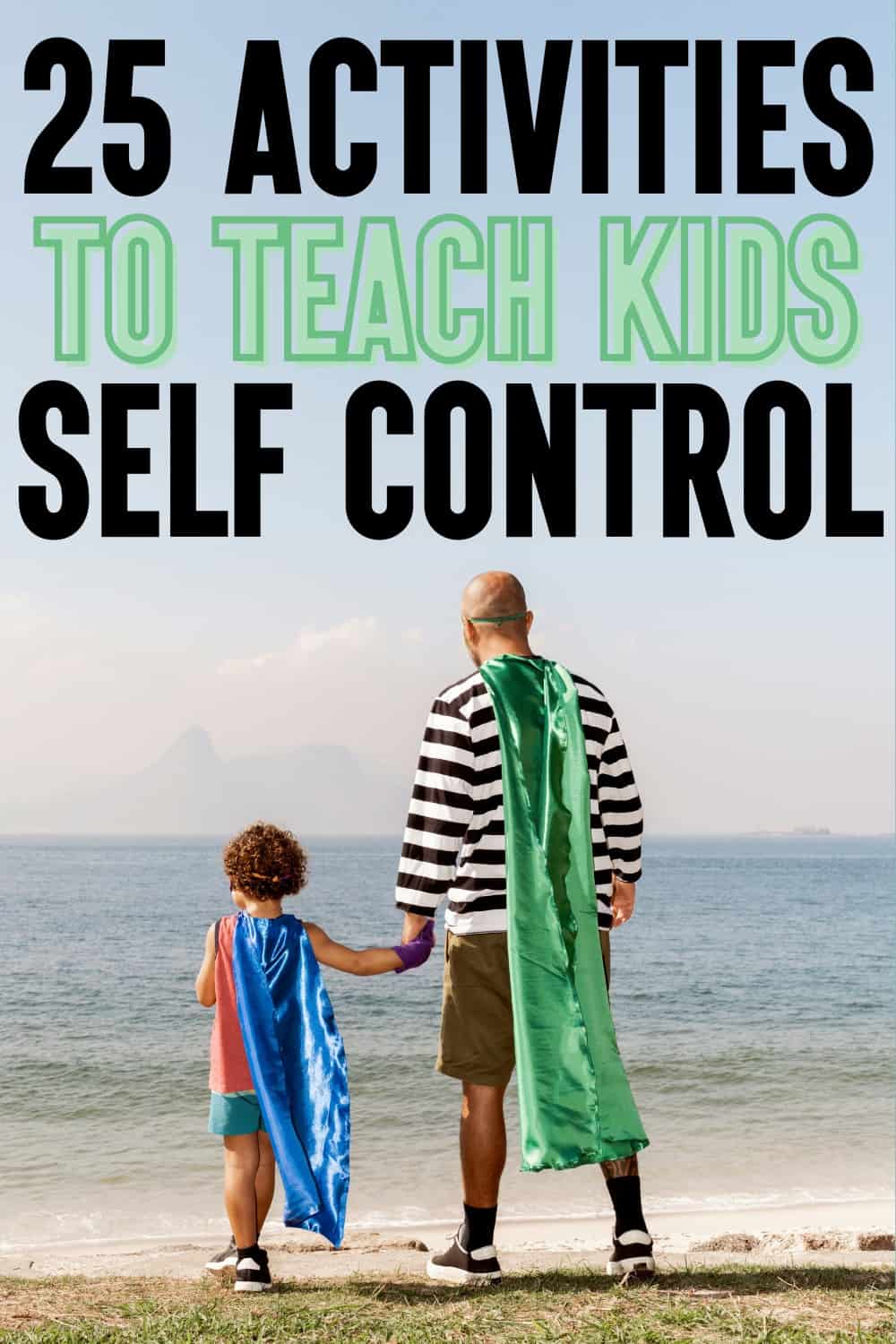Okay, can we just say out loud how wild parenting can be sometimes? Like one minute you’re getting some me time (finally) and the next your kid is melting down over… a banana breaking in half.
Those big feelings are hard. And learning how to not react impulsively as a kid? Even harder.
Here’s the thing I keep learning the longer I’ve been a momma, self-control isn’t just a skill kids magically wake up with one day. It’s something that grows slowly, in the quiet moments we don’t always notice. Sometimes we have to guide them with tiny every day habits that help do the work.
Self control isn’t a magic fix or a Pinterest perfect parenting hack that we can instantly teach our kids. But, it is an important thing to learn.
Just real, doable things you can weave into your normal, beautifully messy day to help your kid build that “pause” muscle.

So… what exactly is impulse control?
It’s basically your child’s ability to pause before they act, speak, or react. It shows up when they wait their turn, ask to join a game instead of barging in, or take a deep breath instead of yelling or throwing a fit when they’re frustrated.
These moments don’t come out of nowhere they come from practice, over and over, in little everyday situations.
And how do we help them practice?
We create chances. Low-pressure, playful chances. Nothing forced or complicated. Just simple, gentle ways to help them slow down, check in with their body and brain, and make a better choice the next time.
Here are a few of the ways we do that in our house:
1. Freeze & Focus Game Turn up the music and let your kids dance it out. But when the music stops, they freeze into a silly pose from a picture card you show them before the round. This helps with listening, attention, and memory—all while being totally giggle-worthy.
2. Simon Says… Mindfully We all know the classic, but give it a twist. Use slow, mindful commands like “melt to the floor like a snowflake” or “breathe like a sleepy dragon.” This helps kids tune into their bodies and practice slowing down instead of racing through.
3. Breathing Buddies Grab a stuffed animal and lay on your back. Place the buddy on your tummy and watch it rise and fall as you breathe in and out. This turns mindfulness into something visual and soothing for littles who need help settling down.
4. Emotion Charades Sometimes kids don’t lash out because they’re “bad”—they just don’t have the words. Act out emotions like excitement, frustration, boredom, or nervousness and let your child guess. Then switch roles! This builds empathy and body awareness.
5. The Waiting Game Ask a question… but make them wait 5 seconds before answering. Sounds simple, but it’s surprisingly hard for impulsive kiddos—and a great way to stretch their “pause” muscles.
6. Art Breaks for Emotional Regulation Set out crayons, clay, or paint and let your child make a “feelings picture.” They don’t have to talk about it if they’re not ready—just the act of creating gives them space to reflect, cool off, or reset.
7. Story Interruptions Read a story and let your child jump in with reactions or guesses—but teach them how to raise their hand or ask first. This is a great practice if you’re a homeschooler like me!
8. Role Play Real Life Set up mini scenarios like waiting in line, asking to join a game, or dealing with disappointment. Let them try different reactions and talk about what worked (and what didn’t). It’s practice without the pressure.
9. The Whisper Challenge Just like telephone—but quieter. Whisper a silly sentence and pass it down the line. Kids have to listen closely and not yell their guess. It’s sneaky listening and patience training in one.
10. Calming Corners & Cool Down Kits Create a cozy corner with sensory toys, calming visuals, breathing prompts, and a soft blanket or stuffed animal. Let it be their safe spot when emotions get too big.
11. Enroll your Child in Sports or Activities that teach self control. Martial arts, yoga, gymnastics, swim team, and team sports (basketball, baseball) are all great activities for kids to learn self-control.
Our daughter participates in swim team year round and it has done wonders for her mental health and self-control. There’s something kind of magical about swim team when it comes to self-control.
Your child has to wait their turn on the block, follow a specific sequence, stay in their lane (literally), and listen carefully to the coach’s feedback, all while working through the physical discomfort of hard laps.
It teaches patience, focus, and emotional regulation in a really embodied way. And because it’s repetitive and routine-based, it helps kids feel safe and challenged at the same time.

How to Deal with Self Control in Real Life Situations
So, what do you do if you’re child is losing their self-control. Throwing a fit because of something unreasonable, acting out in the grocery store, or yelling somewhere they should be quiet (church, the library)?
Here are some things you can do in these situations:
- Understand WHY kids act out. Sometimes they don’t even know why they are acting out, especially if they are little… and there are some things we can do as moms to prevent meltdowns or prepare them for being more in control of themselves.
This can be as simple as making sure they are getting good sleep or aren’t just cranky because they’re hungry. - Learn these positive parenting strategies that work to teach kids things like self control. There are even positive ways to stop toddler tantrums in their tracks!
- Create family goals around self control, simple and easy goals that your kids can achieve, like having them help serve dinner to everyone in the family before they eat.
- Make sure you’re taking time to communicate with your kids about their feelings. Create an appropriate time to talk about feelings, so they know they will have an opportunity to be heard.
- Model good self control for your kids. Our kids are always watching us and how we react to situations. This is one of the biggest ways they learn how to behave. Vocalize your self control to them “I’m trying to keep my voice really quiet because we are at church” “I’m going to wait to start eating until everyone has there food”
- Talk to your kids when they lose their self control calmly in an age appropriate manner. Ask them things like “How could you have handled that differently?” “What can you do differently next time?”
Use the FREE Emotions Chart Below to help your kids understand their emotions.

Final thoughts from one mom in the thick of it to another
Self-control isn’t about perfection it’s about practicing. Some days your kid will wait patiently. Other days they’ll lose it over something random.
That doesn’t mean you’re doing it wrong. It means you’re raising a real human with developing emotions.
And every time you help them pause, just for a moment, you’re giving them the tools they’ll carry forever.
You’re doing so much better than you think. 💛





Leave a Reply